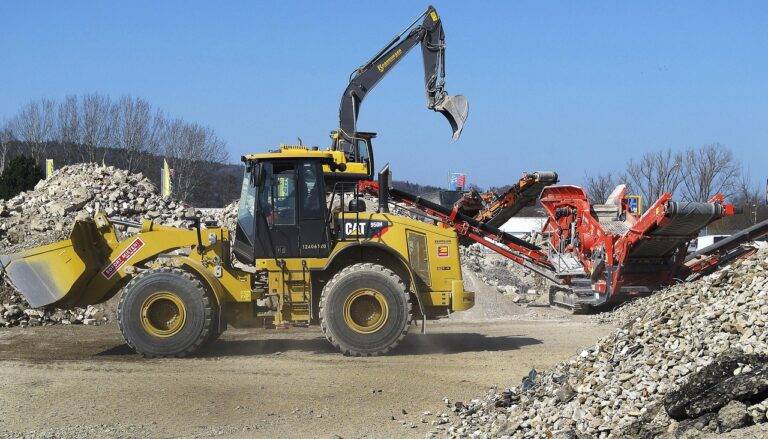Exploring Data Analytics for Smart Waste Collection Systems
cricket 999.com login, 11xplay online, betbhai9 id: Data analytics is revolutionizing the way we manage waste in our communities. With the rise of smart waste collection systems, municipalities and waste management companies are leveraging data to optimize collection routes, reduce costs, and improve overall efficiency. In this article, we will explore how data analytics is transforming the waste management industry and the benefits it brings to our environment and society.
What is Data Analytics in Waste Management?
Data analytics in waste management involves the collection, processing, and analysis of data to improve the efficiency of waste collection and disposal processes. By leveraging advanced technologies such as sensors, GPS tracking, and predictive analytics, waste management companies can monitor waste volumes, optimize collection routes, and identify areas for improvement.
One of the key benefits of data analytics in waste management is the ability to reduce costs and carbon footprint by minimizing unnecessary collections and optimizing truck routes. By analyzing historical data and real-time information, waste management companies can identify patterns and trends to predict future waste generation and adjust their operations accordingly.
How Data Analytics is Revolutionizing Waste Collection Systems
Smart waste collection systems are a game-changer for the industry, allowing waste management companies to collect and analyze data in real-time to make informed decisions. By installing sensors in waste bins, trucks, and disposal sites, companies can track waste volumes, monitor fill levels, and optimize collection schedules.
With the help of data analytics, waste management companies can identify high-volume areas, predict peak waste generation times, and schedule collections accordingly. This not only reduces costs but also minimizes environmental impact by reducing the number of trucks on the road and optimizing fuel consumption.
Benefits of Data Analytics in Waste Management
The benefits of using data analytics in waste management are numerous. Some of the key advantages include:
1. Cost Reduction: By optimizing collection routes and schedules, waste management companies can reduce fuel consumption, labor costs, and vehicle maintenance expenses.
2. Environmental Impact: Smart waste collection systems help minimize emissions and reduce carbon footprint by optimizing truck routes and reducing unnecessary collections.
3. Improved Service Quality: Data analytics allows waste management companies to provide efficient and timely services to customers by predicting waste generation patterns and adjusting collection schedules accordingly.
4. Increased Recycling Rates: By analyzing waste composition and volume data, waste management companies can identify opportunities to promote recycling and reduce waste sent to landfills.
5. Enhanced Safety: Smart waste collection systems enable companies to monitor truck locations in real-time, ensuring the safety of drivers and pedestrians.
Challenges of Implementing Data Analytics in Waste Management
While data analytics offers numerous benefits to waste management companies, there are several challenges to consider when implementing smart waste collection systems. Some of the key challenges include:
1. Data Security: Protecting sensitive data collected from sensors and IoT devices is crucial to ensure privacy and prevent data breaches.
2. Initial Investment: Implementing data analytics systems requires upfront investment in sensors, software, and infrastructure, which may be costly for some companies.
3. Staff Training: Employees need to be trained on how to use data analytics tools effectively to make informed decisions and optimize waste collection processes.
4. Integration with Existing Systems: Integrating data analytics systems with existing waste management platforms can be complex and time-consuming, requiring expertise in data management and analysis.
FAQs
1. Can data analytics help reduce waste sent to landfills?
Yes, by analyzing waste composition and volume data, waste management companies can identify opportunities to promote recycling and reduce the amount of waste sent to landfills.
2. How do smart waste collection systems use data analytics to optimize routes?
Smart waste collection systems utilize sensors and GPS tracking to monitor waste volumes, track fill levels, and predict peak waste generation times, allowing companies to optimize truck routes and schedules.
3. What are the key benefits of implementing data analytics in waste management?
Some of the key benefits of using data analytics in waste management include cost reduction, environmental impact mitigation, improved service quality, increased recycling rates, and enhanced safety for drivers and pedestrians.
In conclusion, data analytics is transforming the waste management industry by providing valuable insights into waste generation patterns, optimizing collection routes, and reducing costs. Smart waste collection systems are revolutionizing how we manage waste in our communities, leading to a more efficient and sustainable future. By leveraging data analytics, waste management companies can minimize environmental impact, enhance service quality, and promote recycling, ultimately benefiting both society and the environment.







